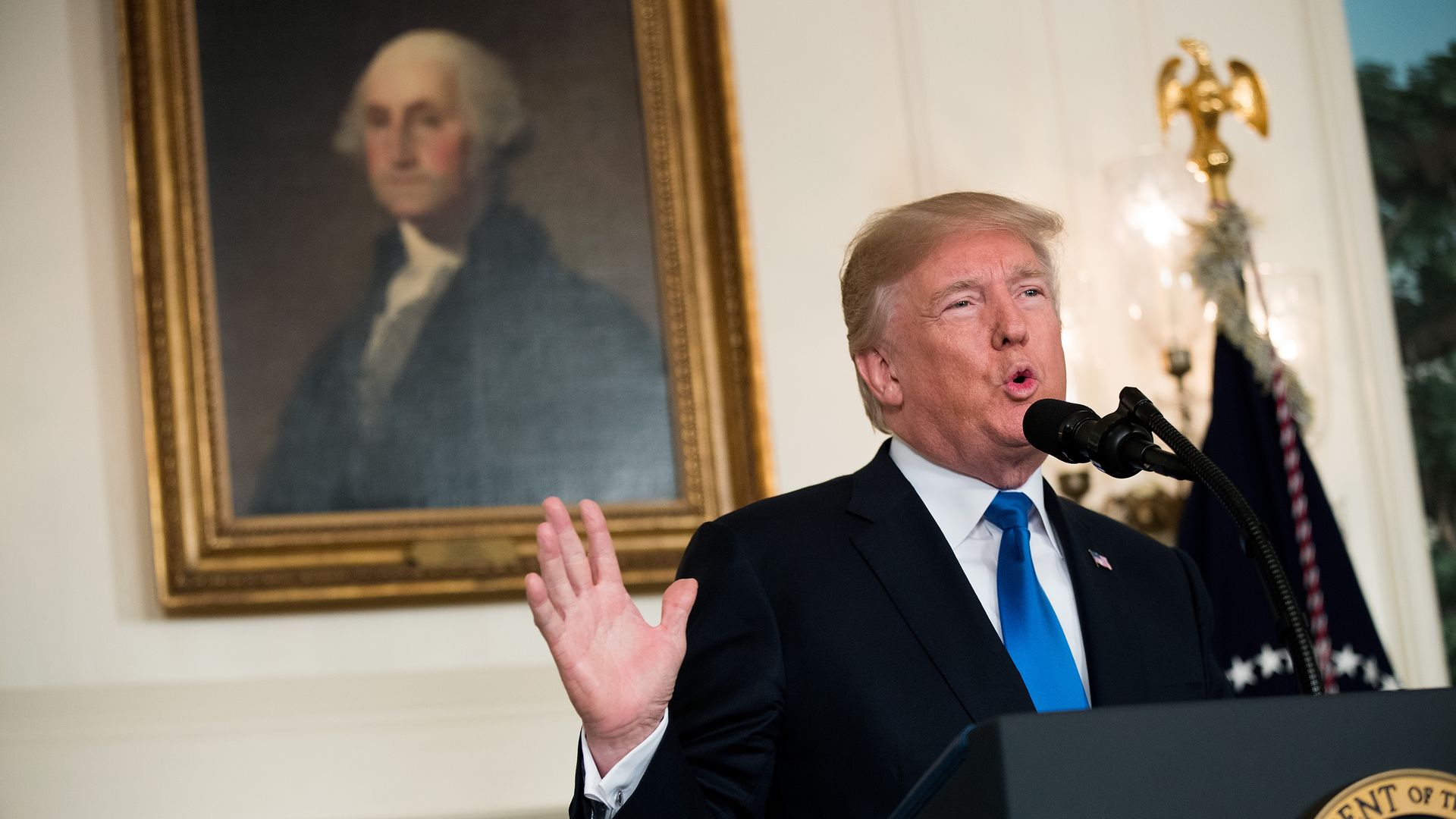Updated Jan 18, 2018 - Politics & Policy
Expert VoicesThe Iran deal is bigger than Iran
Add Axios as your preferred source to
see more of our stories on Google.

President Trump announced his previous plans for the Iran deal on October 13, 2017. Photo: Drew Angerer / Getty Images
